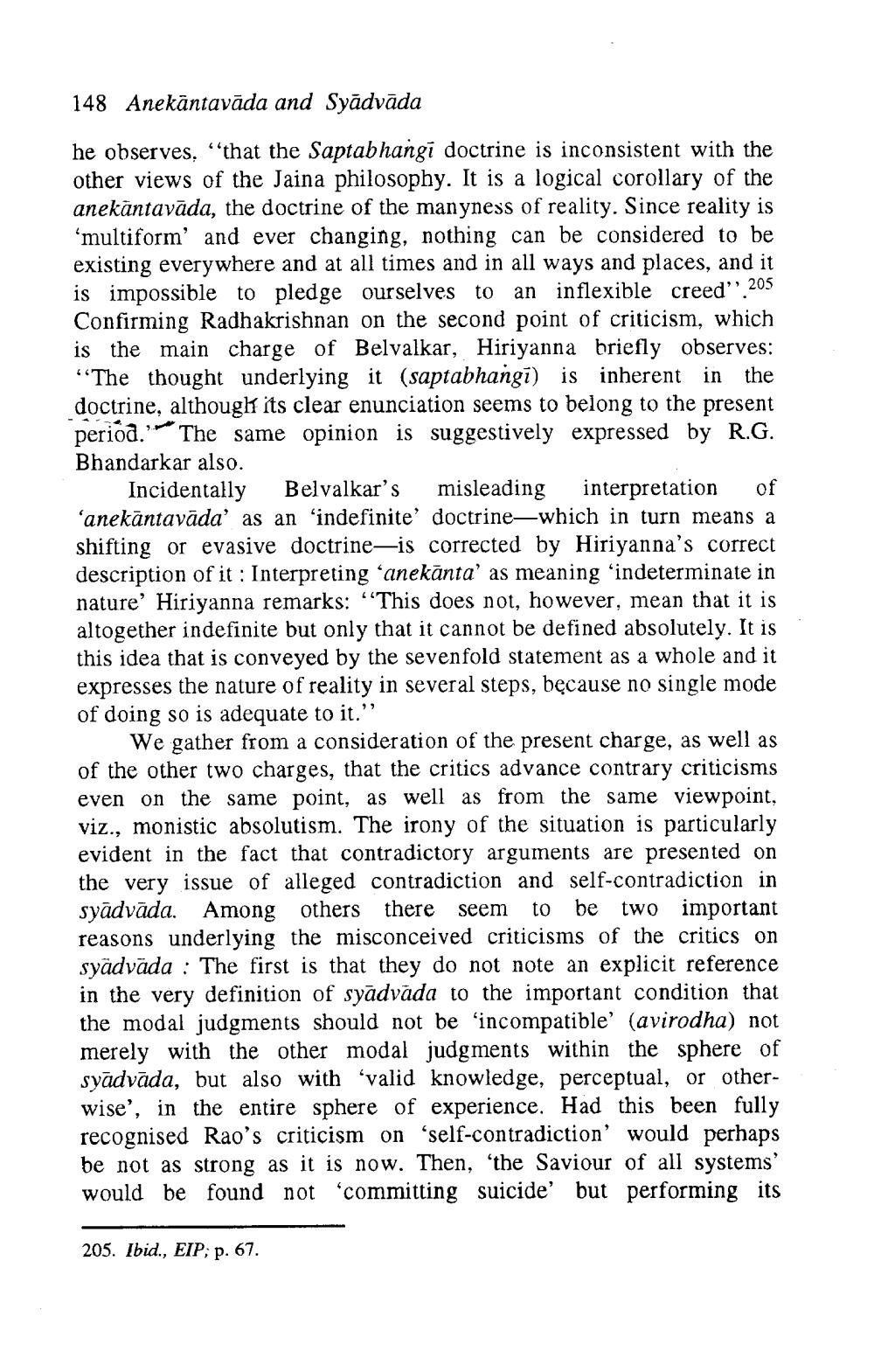________________
148 Anekāntavāda and Syādvāda
he observes. “that the Saptabhangi doctrine is inconsistent with the other views of the Jaina philosophy. It is a logical corollary of the anekāntavāda, the doctrine of the manyness of reality. Since reality is multiform' and ever changing, nothing can be considered to be existing everywhere and at all times and in all ways and places, and it is impossible to pledge ourselves to an inflexible creed205 Confirming Radhakrishnan on the second point of criticism, which is the main charge of Belvalkar, Hiriyanna briefly observes: "The thought underlying it (saptabhangi) is inherent in the doctrine, although its clear enunciation seems to belong to the present perioa.' The same opinion is suggestively expressed by R.G. Bhandarkar also.
Incidentally Belvalkar's misleading interpretation of 'anekāntavāda' as an 'indefinite' doctrine—which in turn means a shifting or evasive doctrine—is corrected by Hiriyanna's correct description of it : Interpreting ‘anekānta' as meaning 'indeterminate in nature' Hiriyanna remarks: "This does not, however, mean that it is altogether indefinite but only that it cannot be defined absolutely. It is this idea that is conveyed by the sevenfold statement as a whole and it expresses the nature of reality in several steps, because no single mode of doing so is adequate to it.”
We gather from a consideration of the present charge, as well as of the other two charges, that the critics advance contrary criticisms even on the same point, as well as from the same viewpoint, viz., monistic absolutism. The irony of the situation is particularly evident in the fact that contradictory arguments are presented on the very issue of alleged contradiction and self-contradiction in syādvāda. Among others there seem to be two important reasons underlying the misconceived criticisms of the critics on syadvada : The first is that they do not note an explicit reference in the very definition of syadvada to the important condition that the modal judgments should not be 'incompatible' (avirodha) not merely with the other modal judgments within the sphere of syadvāda, but also with 'valid knowledge, perceptual, or otherwise', in the entire sphere of experience. Had this been fully recognised Rao's criticism on ‘self-contradiction' would perhaps be not as strong as it is now. Then, 'the Saviour of all systems would be found not 'committing suicide' but performing its
205. Ibid., EIP, p. 67.




